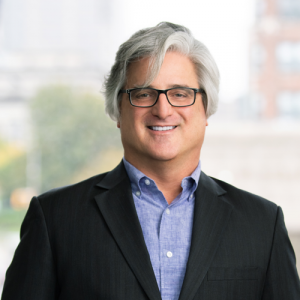The False Claims Act has long been a fierce, but fair weapon in the government’s fight against fraud. Recently, however, profit minded trial attorneys and private entities have monetized the FCA by taking advantage of the fraud statute’s ambiguous safeguards. By creating qui tam portfolios and securing stakes in whistleblower awards, these financially driven parties have turned FCA actions into investment opportunities. Sanctioned by some courts, this practice has forced hospitals and health care systems to defend against an increasing number of frivolous or immaterial claims.
One particular example from the Eleventh Circuit highlights the use of the FCA as an investment tool for clever litigants and exemplifies why proposed amendments to the critical “materiality” standard of the FCA could spell additional trouble for those providers who participate in Medicare and Medicaid. In U.S. ex rel. Ruckh v. Salus Rehabilitation, LLC, et al., 963 F. 3d 1089 (11th Cir. 2020), the defendant long-term care facilities and their management companies suffered a massive jury verdict just shy of $350 million based on allegations of upcoding, paperwork defects and failing to maintain proper care plans. After a prolonged trial and an unfavorable judgment, the defendants felt brief relief when the district court granted judgment notwithstanding the verdict, finding that the alleged defects and false statements were not material to the government’s decision to pay the claims. Unsurprisingly, the relator appealed the district court’s decision.
On appeal, along with arguing that the statements made to the government were immaterial to its payment decision, the defendants argued that the relator did not have proper standing to prosecute the case because she handed over control of the qui tam litigation when she entered into a litigation funding agreement with an LLC. Under that agreement, the LLC provided liquidity for the prosecution of the case in return for 4% of the relator’s share of any profits from a settlement or judgment in the action. Despite an argument that such agreements are prohibited by the FCA, the Eleventh Circuit approved of the relationship, holding that the agreement did not transfer control of the litigation. The Court also held that while the FCA does not specifically allow for litigation funding agreements, the Court would decline to interfere in Congress’s legislative prerogatives by “engrafting any further limitations into the statute.”
The Eleventh Circuit also upheld (albeit lessened) part of the verdict against the defendants. In its order, the Court softened the district court’s condemnation of the relator’s use of complex Medicare and Medicaid regulations to pin defendants with questionable liability under the FCA. Instead, the Eleventh Circuit relied on the traditional interpretation of “materiality” stemming from Universal Health Services, Inc. v. Escobar, 136 S. Ct. 1989 (2016), reaffirming that the FCA is not an “all-purpose anti-fraud statute…or a vehicle for punishing garden-variety breaches of contract or regulatory violations.” As a result, the Court found that the evidence of upcoding was material to the government’s decision to pay Medicare claims and defendants were liable for over $85 million in damages. However, the court granted some relief, agreeing with the district court that the failure to maintain care plans was not material to Florida’s decision to pay Medicaid claims.
The Court’s order in U.S. ex rel. Ruckh is not a landmark decision that will carve a path for the unscrupulous monetization of the FCA. It does, however, highlight the shift in FCA litigation that will continue to cause trouble for health care entities. Decisions like this give credence to questionable financial relationships between relators and litigation funding entities, and creates incentives for professional whistleblowers to rely on the FCA as a tool to force huge settlements. Further, Senator Grassley’s proposed amendments to the FCA—which would revise the definition of materiality to mean a claim is fraudulent any time the government could refuse payment, even if it does not do so with full knowledge of the claim—would make it easier for profit-minded parties to find windfalls within the health care industries’ thousands of pages of complex, confusing and often times immaterial regulations.
Health care entities need to prepare for the changing landscape of FCA litigation and expect to defend against claims of non-compliance, no matter how significant. Cases like this and proposed revisions to the materiality standard will make it a more regular occurrence, and inevitably more costly, to defend against these claims.
If you have any questions or would like more information, please contact:
- David Honig at (317) 977-1447 or dhonig@wp.hallrender.com;
- Matt Schappa at (317) 429-3604 or mschappa@wp.hallrender.com; or
- Your primary Hall Render contact.
Hall Render blog posts and articles are intended for informational purposes only. For ethical reasons, Hall Render attorneys cannot—outside of an attorney-client relationship—answer specific questions that would be legal advice.


